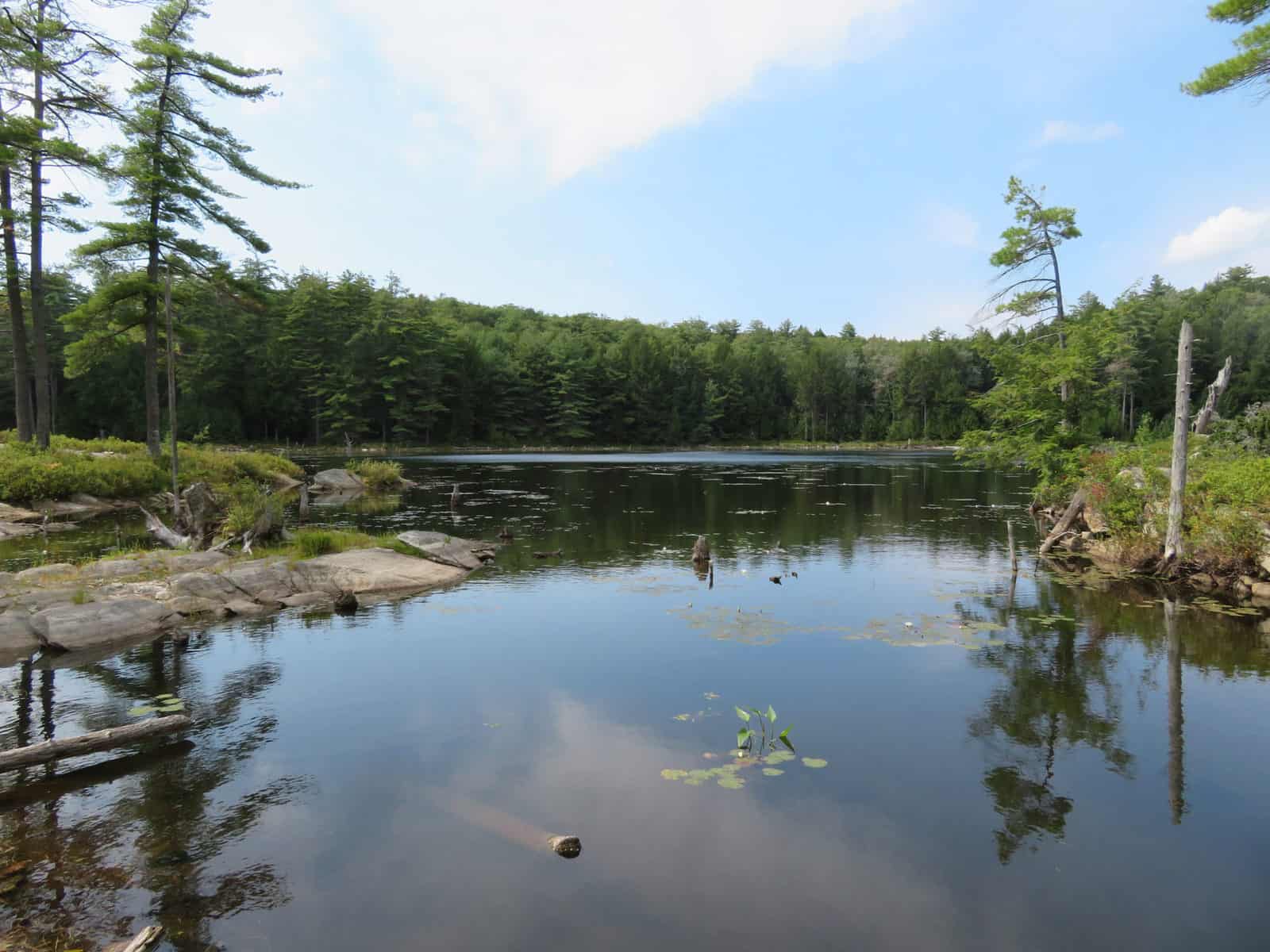
WINDHAM COUNTY, Vt. – The Windmill Hill Pinnacle Association signed a conservation easement with the Vermont Land Trust and the Vermont Housing and Conservation Board on May 5, 2022 on an ecologically diverse 615-acre parcel the nonprofit group recently acquired in Windham County. Known as Lily Pond Highlands and located in the towns of Athens, Brookline, and Townshend, the land was purchased in May 2021 by WHPA and the signing by the co-holders of the easement is the final step in the conservation of this rugged landscape.
Lily Pond Highlands lies west of Hedgehog Gulf and Grassy Brook Road and is connected to the WHPA’s 2100-acre reserve to the east by the Town Line Trail, with a trailhead just across Grassy Brook Road from this newly conserved land.
WHPA’s management goal is to allow the forest to mature into old growth conditions whereby it will store a significant amount of carbon. These mature forests will also provide old forest habitat that is underrepresented in the region and will support the diverse range of species that depend on it.
The land that now comprises Lily Pond Highlands was owned for years by James Massey of Westminster West. WHPA realized the importance of this parcel of land and discussed with Mr. Massey his wish to see it remain undeveloped. After Mr. Massey’s death, the land passed to his two nephews in Ohio, James and Joseph Massey, who knew their uncle’s wish for the land to be conserved, and honored it in the terms of the property transfer. With the addition of the Lily Pond Highland parcel, 3,350 acres of land is protected along the Windmill Hill Ridgeline and on the parallel ridgeline continuing into Townshend to the west by WHPA, Putney Mountain Association, and other landholders.
“We are thrilled to support the Pinnacle Association in protecting this land,” said Jennifer Garrett, Project Director of the Vermont Land Trust. “Our partnership goes back over decades, and we’re gratified to have helped them conserve over 2,000 acres that are important for wildlife, climate, and the community.”
An extensive ecological assessment was conducted at Lily Pond Highlands in 2021 by ecologist Brett Engstrom, helped by Andrew Toepfer, who assisted with fieldwork, cartography, and information on cultural features. The assessment brought to light important features of the land:
- The report called Lily Pond “a natural pond and gem” and said that a total of 34 wetlands covering approximately 22 acres “are by far the most important habitat for rare, threatened, endangered, and uncommon plant species.”
- It noted the remarkable brooks, many acres of mast trees used heavily by black bears, and food sources and denning spots supporting a wide range of wildlife.
- It listed ten plant species listed as endangered, rare, or uncommon, 12 vernal pools of which six are state significant, nine wetland and forest communities that are state significant, and habitat for wood turtles (an uncommon Vermont species).
In the near future, trail work will be done and public access to the trail will be provided; more information will be available at that time.
This summer, Rich Holschuh and Melody Walker Mackin of the Atowi Project in Brattleboro will carry out a “traditional cultural landscape assessment” of Lily Pond Highlands in an effort to contribute to the growing awareness of the connection between the land and the indigenous people who have lived on it for over 12,000 years.